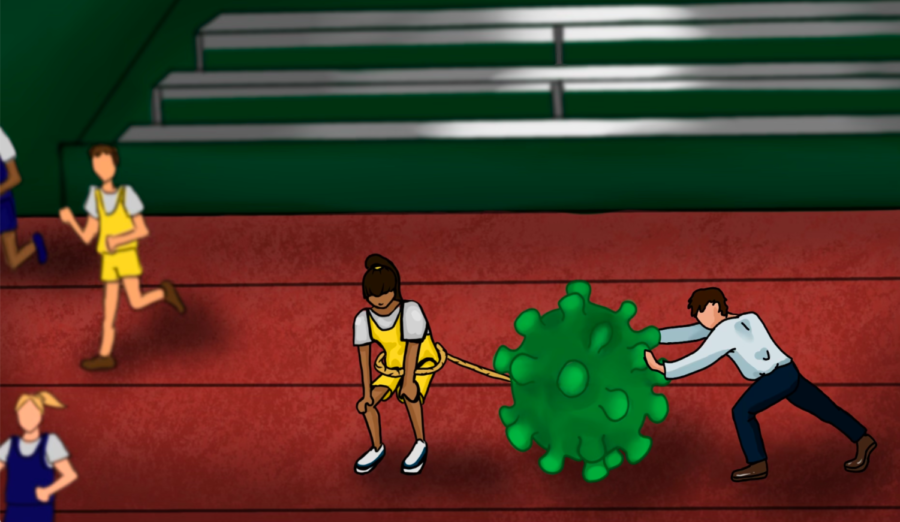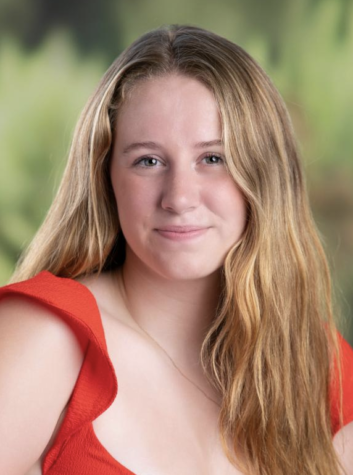Teachers are Hopeful That Students Can Recover From the Setbacks of Distance Learning
Teachers reflect on the pandemic’s impacts on student’s learning this year. Staff illustration: Tatum Herrin.
November 4, 2021
Distance learning left students in different places academically: it worked well for some and not as well for others. According to multiple teachers, students’ academic progress is scattered, so their current goal is to bring everyone back on the same page.
According to Upper School science teacher Nina Arnberg, teachers have readjusted their expectations for what students can do from the start of the year. Distance learning prevented students from acquiring the skills they would have in a normal year. “It’s hard to fault students for not developing skills that they were not [given the chance] to acquire,” Arnberg said.
Arnberg has noticed students missing the lab skills for biology that they typically learn as sophomores in chemistry. Upper school history Department Chair and Upper School history teacher Carmen Borbón has also seen a decrease in skills that have been the expectation in past years, especially from a writing standpoint.
“To me, it makes sense,” Upper School math teacher Sujata Ganpule said about students being further behind than in past years. According to Ganpule, just like other departments weren’t able to cover everything that they would in a normal year, the math department was forced to skip certain units. “I think [learning] is going to go slower this year because students aren’t as well prepared, so we need to make sure that we build scaffolding and support to get them where they need to be [to succeed],” Ganpule said.
Arnberg agrees that teachers need to provide extra support for students to be successful this year. She has faith in the school’s ability to offer that additional support because she has seen the way Menlo has supported students in the past. “Learning happens best when educators can work closely with their students. Small class sizes, access to faculty and additional learning resources […] are what make Menlo unique,” she said.
Both teachers and students need to put in work to get back up to speed academically, according to Upper School Science Department Chair James Formato. “Teachers and students need to meet in the middle,” he said. Formato expects students to increase their communication with teachers. Along with students doing their part, teachers need to be aware that students are still facing the lingering effects of the pandemic, according to Formato.
Teachers are grateful that any academic slip that occurred during the pandemic won’t be detrimental to students’ learning. Borbón reflected on the distance learning situation and believes that students and teachers could have been left even further behind. Menlo’s ability to keep operating throughout the pandemic has left students in a relatively good spot, she said. “Some of [my colleagues working in public schools] did not have the Zoom option last year, so in that sense, I think we’re doing okay,” Borbón said.



